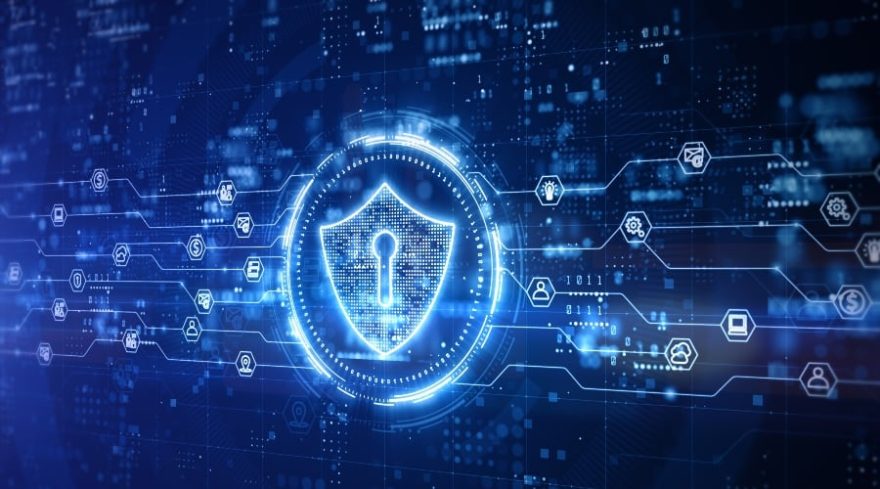Blockchain technology is gaining popularity because of its potential to improve cybersecurity. It is a decentralized, distributed ledger that can provide transparency and immutability, which are essential components of cybersecurity. In this article, we will explore the benefits of blockchain in cybersecurity and how it can improve security.
What is Blockchain?
Blockchain is a distributed, decentralized ledger that records transactions in a secure and transparent way. It is made up of blocks, each containing a record of several transactions. These blocks are linked together in a chain, creating a permanent record that cannot be altered.
Blockchain is secure because it uses cryptography to secure transactions and maintain the integrity of the data. Each block contains a cryptographic hash of the previous block, which makes it tamper-proof. This means that once a transaction has been recorded on the blockchain, it cannot be altered or deleted.
How Can Blockchain Improve Cybersecurity?
Blockchain technology can improve cybersecurity in several ways, including:
- Decentralization
One of the most significant benefits of blockchain technology is its decentralization. In a traditional centralized system, all data is stored on a central server, making it a single point of failure. If the central server is hacked, all data is at risk.
In contrast, blockchain technology is decentralized, meaning that data is stored across a network of computers, making it difficult for hackers to attack. The distributed nature of blockchain technology also means that there is no single point of failure. If one node in the network is compromised, the other nodes will continue functioning.
- Immutability
Another significant benefit of blockchain technology is its immutability. Once a transaction is recorded on the blockchain, it cannot be altered or deleted. This means that the data stored on the blockchain is tamper-proof, providing a high level of security.
Immutability is essential in cybersecurity because it ensures that data cannot be manipulated or tampered with. This makes it difficult for hackers to alter data, making it more secure.
- Transparency
Blockchain technology provides transparency, which is critical in cybersecurity. Transactions on the blockchain are visible to all nodes in the network, making it difficult for hackers to hide their tracks. This transparency also makes it easier to identify suspicious activity and track the source of an attack.
- Smart Contracts
Smart contracts are self-executing contracts with the terms of the agreement written into lines of code. Smart contracts can automate many aspects of a transaction, making it more secure and efficient. For example, smart contracts can automatically release funds when certain conditions are met, ensuring both parties fulfil their obligations.
Smart contracts can also help prevent fraud by ensuring that all parties in a transaction follow the agreed-upon terms. This reduces the need for intermediaries, which can be vulnerable to hacking and other security risks.
- Encryption
Blockchain technology uses encryption to secure transactions and data. Encryption is the process of converting data into code that can only be deciphered with a key. This ensures that data transmitted over the blockchain is secure and cannot be intercepted by hackers.
- Public Key Infrastructure (PKI)
Public Key Infrastructure (PKI) is a system that uses public and private keys to encrypt and decrypt data. PKI is used to secure transactions on the blockchain by providing a secure method for users to authenticate themselves.
PKI is critical in cybersecurity because it ensures only authorized users can access data. This reduces the risk of data breaches and other security threats.
Conclusion
Blockchain technology has the potential to revolutionize cybersecurity. Its decentralized, distributed nature makes it more secure than traditional centralized systems. Blockchain’s immutability and transparency provide a high level of security, making it difficult for hackers to attack. Smart contracts, encryption, and PKI are all essential components of blockchain technology that can improve cybersecurity.
As the use of blockchain technology continues to grow, it is expected that it will play an increasingly important role in cybersecurity. Companies and organizations are already exploring how blockchain can be used to improve their security systems, and many are implementing blockchain-based solutions.
While blockchain technology is not a panacea for all cybersecurity issues, it can provide a high level of security that traditional systems cannot. As the threat of cyberattacks continues to grow, it is essential that companies and organizations explore all available options for improving their security. Blockchain technology is one of the most promising solutions available, and it will likely play a significant role in cybersecurity in the future.

